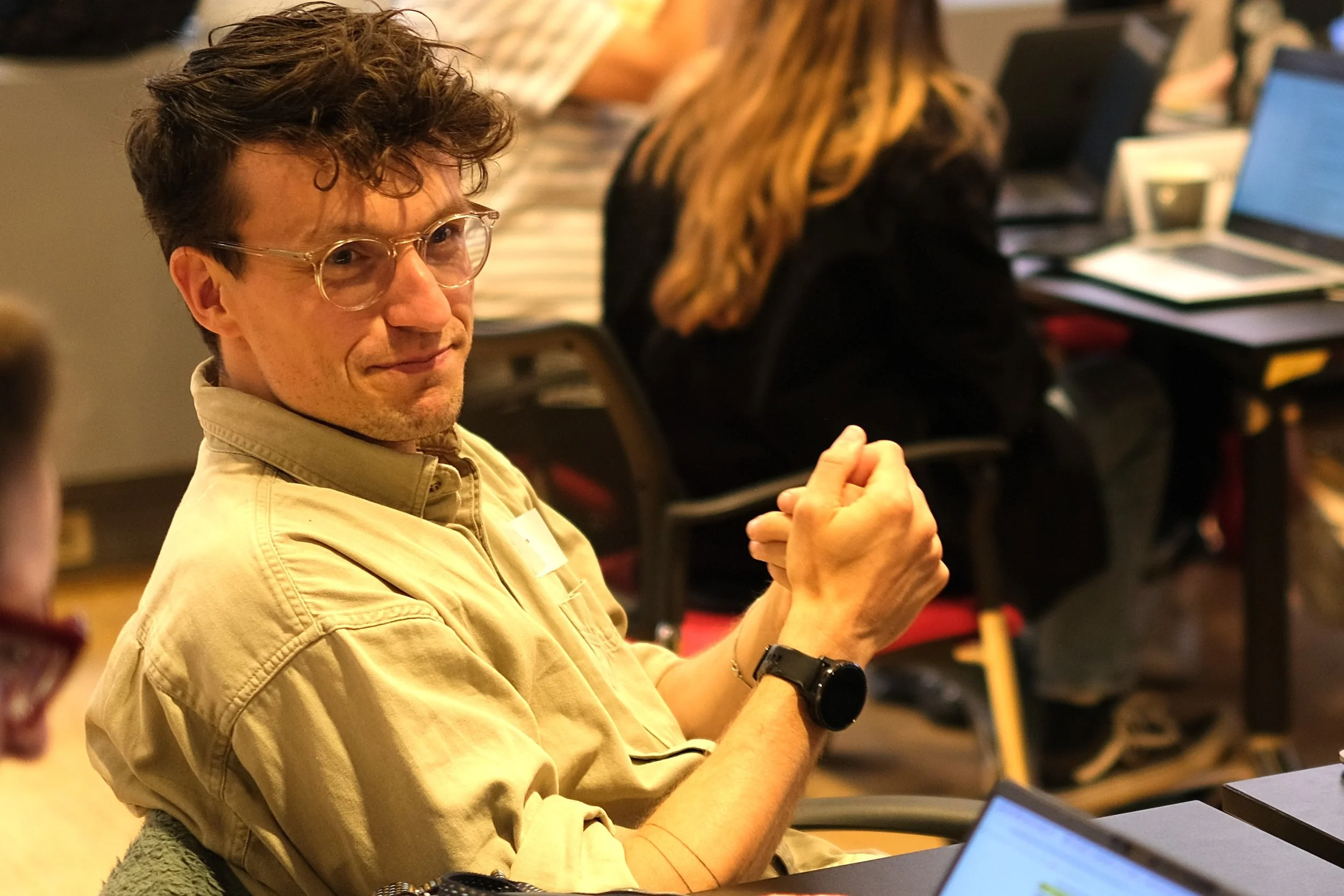“I believe the way we eat — and the policies that shape it — are central to building a just and liveable future.”- Matthijs Germs, Verdante
Matthijs Germs is an independent EU policy advisor and the founder of Verdante, a mission-driven EU policy consultancy working at the intersection of EU agriculture and food policy, plant-based foods, and sustainable proteins.
What does the change you are trying to achieve look like? Why is the EU important?
Food systems face numerous challenges that must be addressed. We are exceeding planetary boundaries, and at the same time, confronted with socioeconomic issues that affect farmers' well-being, European food autonomy, public health, animal welfare, and more. These are deeply interconnected problems that impact the food system as a whole.
I believe the way we eat — and the policies that shape it — are central to building a just and liveable future. If we eat more sustainably, we can also produce more sustainably. Governments and public policies are influencing our food environment, and the availability and affordability of our products. I advocate for public policies that accelerate a shift towards more plant-based proteins, along with financial support for their production. It’s a simple fact that consuming plants directly requires much less land, which helps reduce pressure on the agri-food system. The EU plays a critical role in supporting farmers to produce more sustainably and making healthy and sustainable food choice accessible for consumers.
One-third of the EU budget is allocated to agricultural subsidies, and numerous regulations influence food choices. Key regulatory frameworks I monitor include the Common Agricultural Policy (CAP) subsidies, the EU School Scheme, public procurement policies, and novel food regulations. Additionally, taxes at the Member State level can provide incentives for more affordable, healthier food options. The EU Bioeconomy Strategy is also essential—it has the potential to help scale up and commercialize sustainable plant- and protein food technologies, which makes Europe more resource efficient, more competitive on the global market, and helps improve the price and quality of sustainable food production.
Which challenges are you facing?
A key shift is that the Commissioner's role is now titled Commissioner for Agriculture and Food, yet food is still insufficiently addressed in the agenda. This topic has become highly politicized and we need to depolarize the debate. Additionally, cultural factors around what we eat—and the decisions made in this area—pose further challenges.
It's essential to emphasize how this shift can be an opportunity for farmers and the wider food value chain to diversify and make their work more sustainable and economically viable while also communicating the scientific research on the climate and health benefits of the protein transition.
On the consumer side, food choices are mainly driven by price, quality, taste, and familiarity. Price, in particular, is strongly influenced by subsidies and taxes—areas where both the EU and Member States have regulatory competence.
One tip you want to share with other public interest advocates?
We need to change the narrative and adapt our strategies to effectively advance our issues within the current political context. This includes building unexpected coalitions—such as partnering with progressive private organizations or companies offering innovative solutions that support dietary shifts.
It’s also important to connect food-related issues to other policy areas, ensuring food is represented in bodies focused on health, the environment, and beyond. Depending on the narrative and framing, we must identify the right entry points to integrate our agenda across different sectors.

